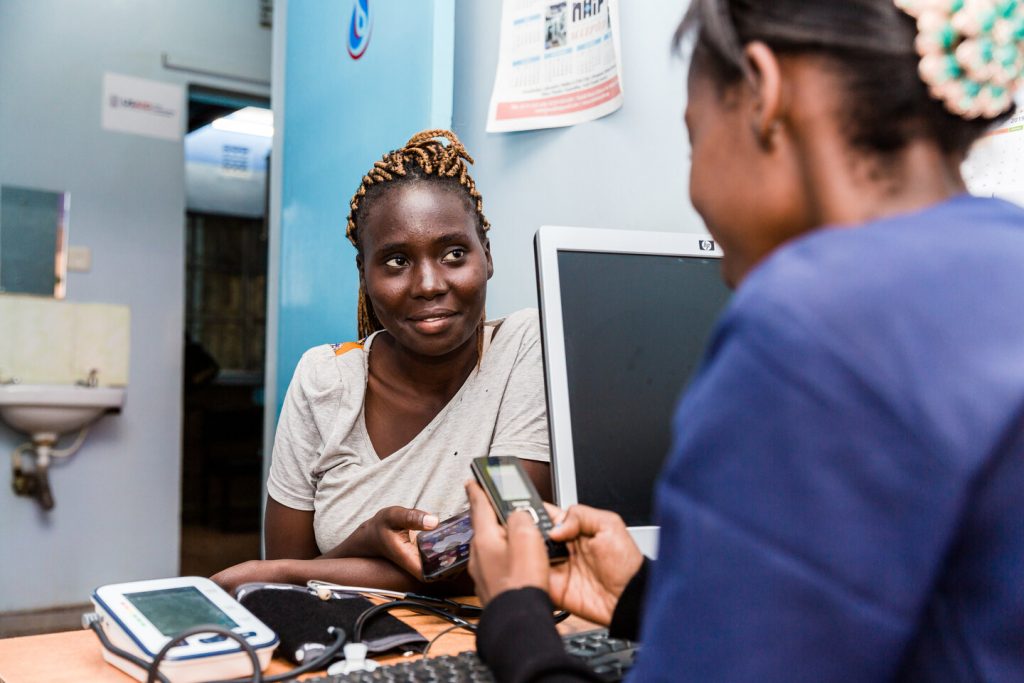The pandemic has highlighted the urgency of self-care as a means of gender-transformative reproductive health
The Covid-19 pandemic has affected nearly every aspect of life, including women’s sexual and reproductive health. A recent study by the Guttmacher Institute predicts deadly consequences for women and girls resulting from limited access to contraception and safe abortion services. But there is a way to avoid these potentially catastrophic outcomes. Self-care – empowering women and girls to effectively manage their own health – can help meet their sexual and reproductive needs, while simultaneously advancing gender equality.
Let’s start with what we know.
Sexual and reproductive health services are among those suffering the most due to the strain put on health systems by the pandemic. Many clinics have shut or face supply chain interruptions compounding a situation where women and girls – particularly the poorest and most marginalised – often cannot afford services, or are denied them because they are unmarried or considered ‘too young’. As a result, we now face the daunting prospect of reversing the tremendous gains made in preventing HIV infections over the past two decades.
CIFF is promoting self-care as a critical way to empower women and girls, and is working to ensure that self-care is integrated into the new feminist global blueprint.
This is happening just as the need for contraception, HIV prevention and safe abortion services may be more important than ever. Cases of domestic violence and rape appear to be increasing during the pandemic and Guttmacher anticipates an additional 15 million unintended pregnancies in low- and middle-income countries due to the Covid crisis. Combined with limited access to care, this could mean an additional 3.3 million unsafe abortions, 28,000 maternal deaths and 168,000 newborn deaths in the next year alone.
These numbers are alarming, but they are not inevitable.
The pandemic has forced a rethink of service design and delivery in many areas, and the Children’s Investment Fund Foundation (CIFF) and other partners have already begun to do this in sexual and reproductive health, through investments in self-care. Working with the Self-Care Trailblazers Group and in support of the new WHO global guideline, CIFF supports high quality, safe and affordable interventions, including oral, emergency, and self-injectable contraception, self-managed abortion care, and self-testing for HIV. All of these tools can be made more accessible by being provided prescription-free, in multi-month distributions, and/or with remote medical engagement and follow-up care, reducing the need for health facility visits.

In Their Hands digital platform provides access to critical information and services. Credit: PSI/Natasha Sweeney
CIFF’s investments and strategies leverage its agility and risk appetite as a foundation. Through deals with manufacturers, support for product registration, equitable distribution and diversity of suppliers, CIFF has contributed to reducing prices and expanding the accessibility of HIV self-tests and self-injectable contraceptives for even the most marginalised. CIFF also supports digital platforms like In Their Hands, which aims to put critical information and services within the reach of millions of women and youth. These investments improve the quality of self-managed abortion medication, make service delivery person-centred, and prevent death and injury from unsafe abortion.
Complementing healthcare systems with new self-care devices, drugs, and the use of digital health can help transform how individuals, especially women and girls, engage with health systems and enable them to take greater control of their health.
Enabling women to control their own health decision-making and care supports their bodily autonomy and realisation of their reproductive rights. These are essential elements of gender equality, a goal that has become increasingly important for foundations like CIFF, particularly at a time when it is experiencing a backlash in many countries. Indeed, in its co-leadership role within the Generation Equality Forum, CIFF is promoting self-care as a critical way to empower women and girls, and is working to ensure that self-care is integrated into the new feminist global blueprint.
Complementing healthcare systems with new self-care devices, drugs, and the use of digital health can help transform how individuals, especially women and girls, engage with health systems and enable them to take greater control of their health. They can also be a critical way to respond to the Covid-19 pandemic and to advance towards a more gender equitable world.
Linda Weisert is Director (acting), Strategic Engagement & Communications at the Children’s Investment Fund Foundation.
Email: LWeisert@ciff.org
Twitter: @lindaweisert
Suzanne Petroni is principal & owner of Gender Equality Solutions, LLC.
Email: suzannepetroni@outlook.com
Twitter: @suzp






Comments (0)